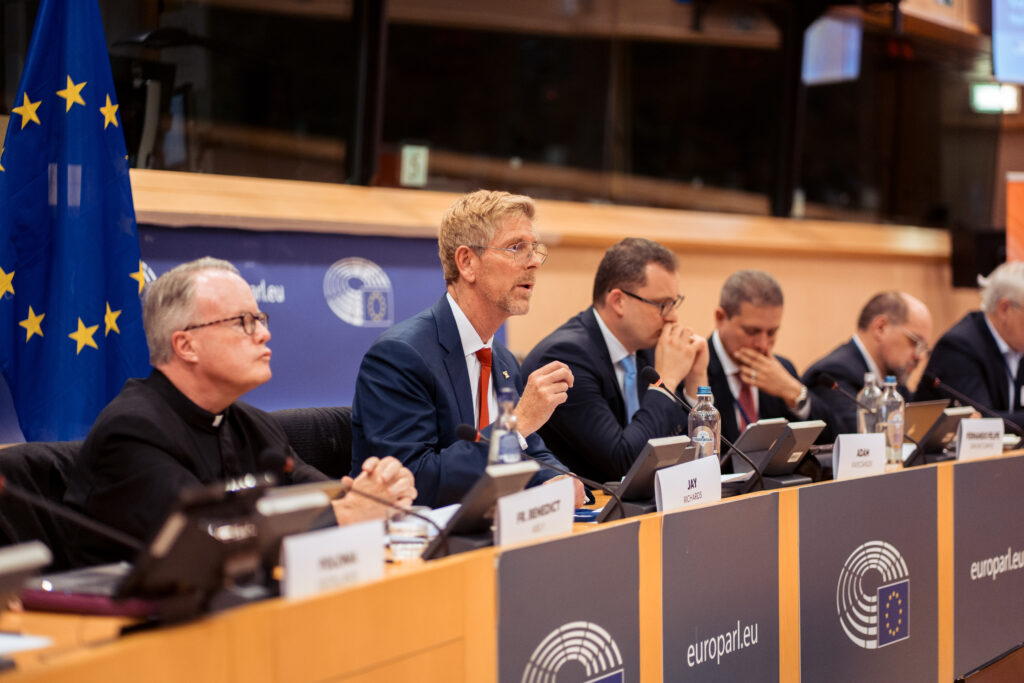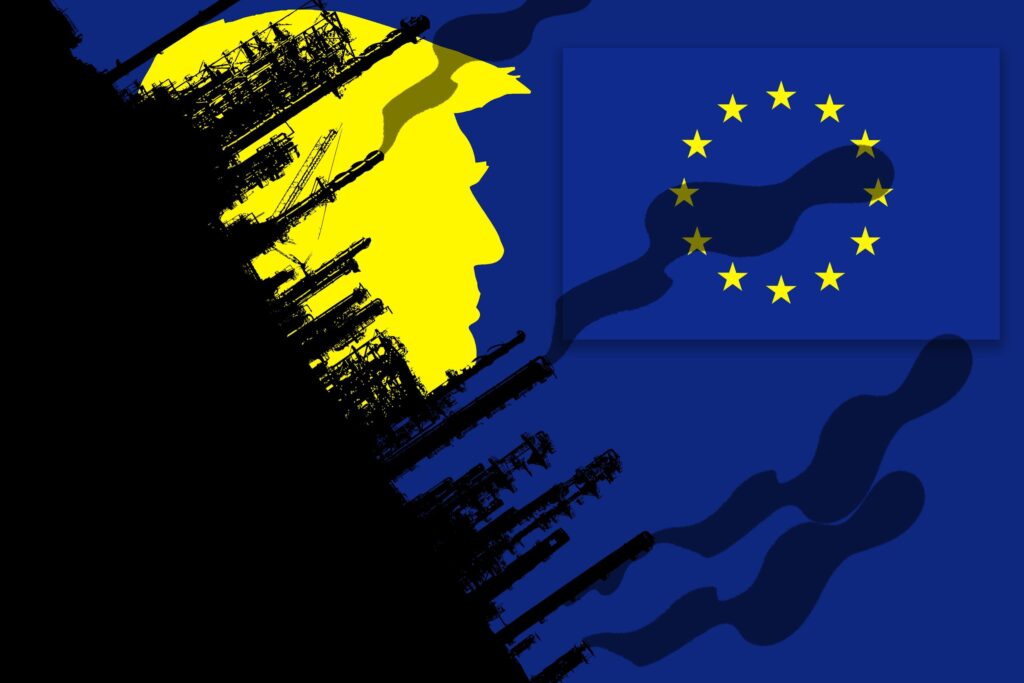Within hours of Canada’s federal government announcing key details during COP28 about its plans to cap greenhouse gas emissions within the oil and gas sector, the country’s top conservative think tanks started sounding the alarm.
“Capping the energy sector’s emissions would deprive Canada of over $6.0 billion a year,” declared a media release from the Quebec-based Montreal Economic Institute, which was soon quoted extensively by the media outlet Business in Vancouver. The oil and gas sector is the top private sector contributor to the Montreal Economic Institute (MEI), contributing nearly $200,000 last year according to figures from the think tank.
A senior fellow with the Ottawa-based Macdonald Laurier Institute wrote an op-ed in the Edmonton Journal newspaper calling the policy “a slap in the face of Indigenous peoples,” while another expert associated with the institute deemed it “an arbitrary target” in a story for the Canadian Press. The Vancouver-based Fraser Institute added to the chorus with an opinion piece for a conservative publication called the Western Standard claiming that the cap is “threatening the employment of many Canadian workers.”
These attacks on a federal climate policy meant to address Canada’s largest source of greenhouse gas emissions on the surface seems to have arisen organically. They came from vastly different parts of the country and appeared in a diverse range of media outlets.
But experts who study the influence of conservative think tanks in Canada say there is a thread linking these attacks, which might not be obvious to the average person. The Macdonald Laurier Institute, the Montreal Economic Institute, and the Fraser Institute are all longtime members of the Atlas Network, a U.S.-based organization with nearly 500 partners worldwide dedicated to fighting government regulation and promoting the interests of oil and gas companies and other corporations.
Atlas has previously received funding from foundations associated with the fossil fuel company Koch Industries, as well as ExxonMobil. It has for years been backing campaigns in Canada and globally to vilify climate protesters as dangerous extremists.
“The Atlas groups have an extreme free-market ideology,” Bob Neubauer, an assistant professor in communications at the University of Winnipeg who studies climate change disinformation, told DeSmog. “I would describe them as being on the further right of market fundamentalism politics in Canada.”
Months of Preparation
Canada’s Atlas members have spent months preparing attacks against the federal government’s emissions cap, which proposes to reduce 2030 emissions in the oil and gas sector by 35 to 38 percent below 2019 levels. The policy is crucial to achieving Canada’s goal of reaching “net zero” by 2050, because nearly one-third of the country’s carbon emissions come from oil and gas.
After the policy was first proposed in July 2022, the Montreal Economic Institute released a report claiming that in a worst-case scenario, an emissions cap could cause lost oil and gas revenue of $79.3 billion just for the year 2030. That is far from a mainstream perspective, given that the oil sands industry itself, as represented by a national marketing and lobby group called the Pathways Alliance, says that achieving net-zero “is critical to the long-term viability of Alberta’s oil and gas sector.”
Yet this week, that Montreal Economic Institute report was quickly repurposed into the media release warning of billions of dollars a year in economic losses from the emissions cap.
The think tank has for decades been a valued partner of the Atlas Network. The Montreal Economic Institute was featured in a 2002 report deeming it one “of the most effective young think tanks in the Atlas network.” An Atlas report from 2021 celebrated the Quebec think tank for its work to “strengthen the worldwide freedom movement.” In that report Atlas disclosed a $32,000 contribution to the Montreal Economic Institute for a project designed to “decrease barriers to free trade in Canada.”
The Macdonald Laurier Institute is also a key partner of Atlas. It’s received grant funding from Atlas for a multi-year project that’s enlisted pro-industry Indigenous leaders in a campaign to promote oil and gas expansion on First Nations territories.
One of those Indigenous leaders is Stephen Buffalo , a senior fellow at the institute, who recently wrote the Edmonton Journal op-ed criticizing the federal emissions cap. Buffalo is also CEO of the Alberta-based Indian Resource Council, which has received $200,000 from the oil and gas company CNRL, according to federal disclosures obtained by DeSmog.
Meanwhile, the Canadian Press quoted Heather Exner-Pirot, a senior fellow with the Macdonald Laurier Institute, as an emissions cap critic. The Atlas Network in 2020 noted that when it comes to natural resources and Indigenous communities, the Macdonald Laurier Institute “has played a vital role in the legislative process.”
Rounding out the attacks against the emissions cap is Kenneth Green of the Fraser Institute, which is one of the original founding members of the Atlas Network. Earlier this year, Green authored a report claiming that capping oil and gas industry emissions “is all pain with no gain.” For evidence, he cited the Montreal Economic Institute report claiming catastrophic financial losses from the emissions cap.
Critics say this is but one example of how conservative think tanks across the country draw from each other’s work to attack regulations that could potentially hurt the profits of oil and gas producers. “They are extremely dedicated to building up their network of compadres,” Neubauer told DeSmog. “They work together.”
Subscribe to our newsletter
Stay up to date with DeSmog news and alerts






